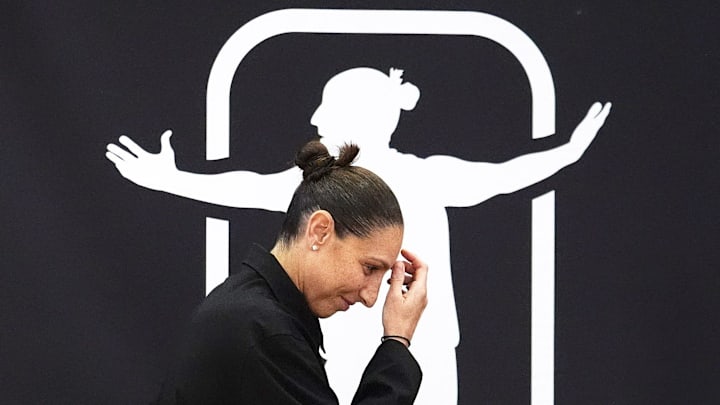"Taurasi" Episode Two Gives Glimpse of Life Playing Overseas

The second episode of the new Diana Taurasi documentary , titled "Rolling in Rubles," is an interesting look at a very different era in women's professional basketball.
Unlike now, where WNBA salaries are a bit bigger (but still not commensurate with the value the players produce for the league) and there are other domestic options for players to earn additional money during the WNBA's offseason, players in Taurasi's generation had to go abroad to earn real money.
Diana Taurasi, despite being widely regarded as the best women's basketball player on the planet at the time, was no exception.
In 2005, she headed to Russia in 2005, along with former college teammate Sue Bird, because she felt underpaid and undervalued back in the United States.
"My first salary as a rookie in the WNBA was at $42,000...before tax, of course," said Taurasi, who was able to earn 16 to 18 timse her WNBA salary in Russia, not including bonuses, according to her agent, Lindsay Kagawa Colas.
At the time, a few teams in Russia were paying up a million a year for top players, the most notable of which was Shabtai Kalmanovich, the gregarious owner of Spartak Moscow.
Taurasi had spent her first year in Russia playing for Dinamo Moscow, and felt discouraged by the experience.
"I hated it.
I hated everything about it," she said.
"If you could make up the silliest drills in any sport that made no sense, he [the coach] was making you do them." At that point, dealing with the separation from home, an unsatisfying basketball environment, and a "long, never-ending winter," she made the decision that she would would never play in Russia again, no matter how much they paid her.
Then along came Shabtai Kalmanovich, who was a collector of sorts, and who was married to Anna Arkhipova, a longtime point guard for the Russian women's national team.
He had a collector's mindset, and sought to sign all of the biggest stars in women's hoops, no matter the cost.
He paid top dollar and surrounded the players with luxury.
In the doc, Taurasi recalled an experience where Kalmanovich gave her 15,000 Euros to go shopping in Paris, which she lost the following night.
When she told him, he lost the money, he opened up a suitcase and gave her 15,000 more.
It couldn't have been more different from flying coach in the NBA.
Taurasi was a league MVP and 2007 WNBA champion, but still made the bulk of her earnings abroad.
And it put her at odds with the WNBA.
"We weren't making that much money, so generational wealth was coming from going to Russia every year," she explained.
"Now we have to come back home and get paid nothing? To play in a harder league, in worse conditions, against the best competition in the world?" Still, it wasn't all easy.
She was thousands of miles from her family and would have to fly all the way to Turkiye and back in 24 hours to see her future wife (and former Phoenix Mercury teammate) Penny Taylor.
And her time in Russia changed dramatically when Shabtai was assassinated in 2009.
The source of his wealth had always been a mystery to the players, but the former KGB agent apparently had enemies.
Spartak dedicated that year's EuroLeague win to him.
Taurasi would leave Russia soon after.
It's difficult to imagine now, but in DT's era, getting paid like one of the best basketball players on the planet meant crossing the globe, far away from loved ones, and getting paid with money from unknown origins.
Today's players are playing in a new landscape, one paved by players like Taurasi.
Check our Facebook and X pages for more on the Mercury..
This article has been shared from the original article on si, here is the link to the original article.
